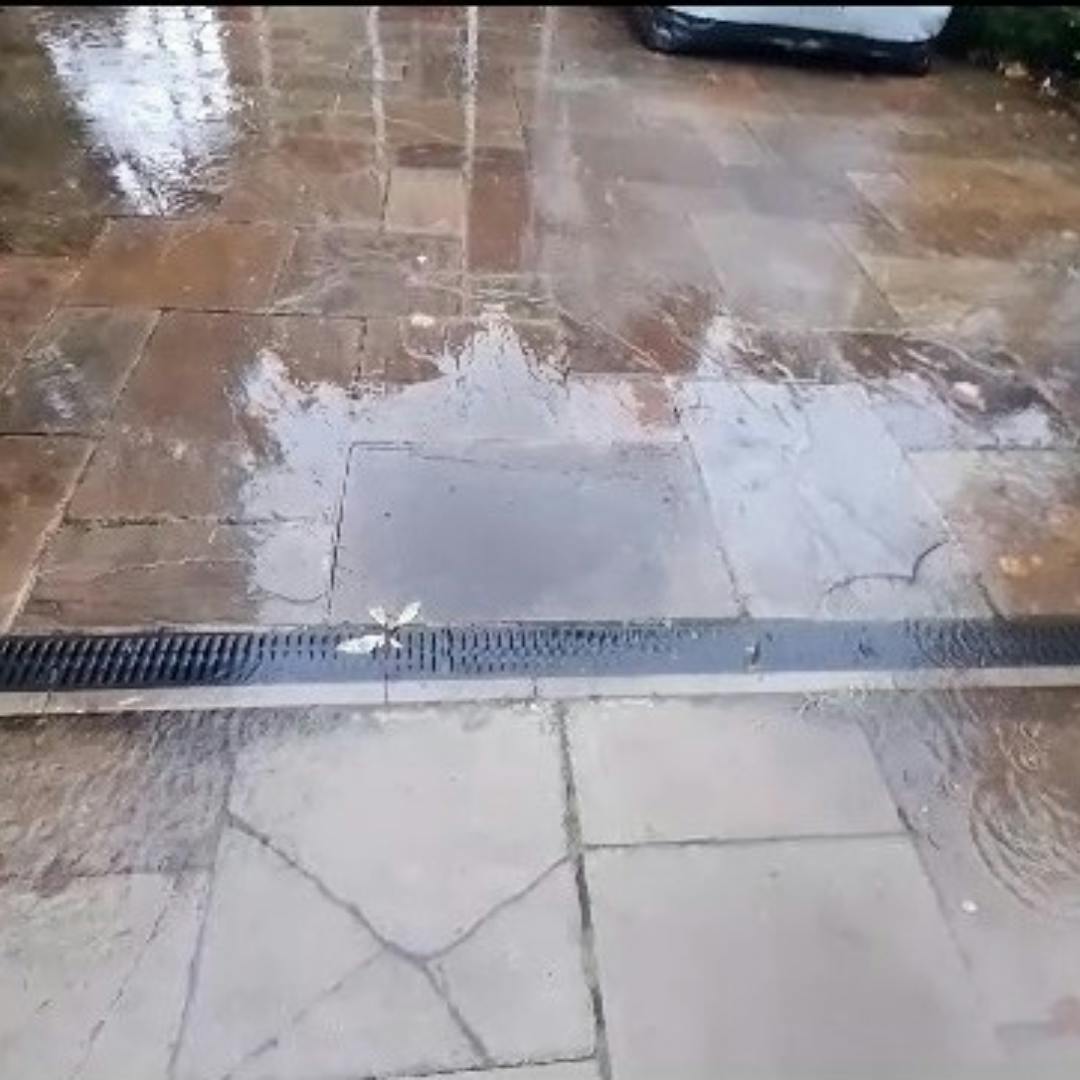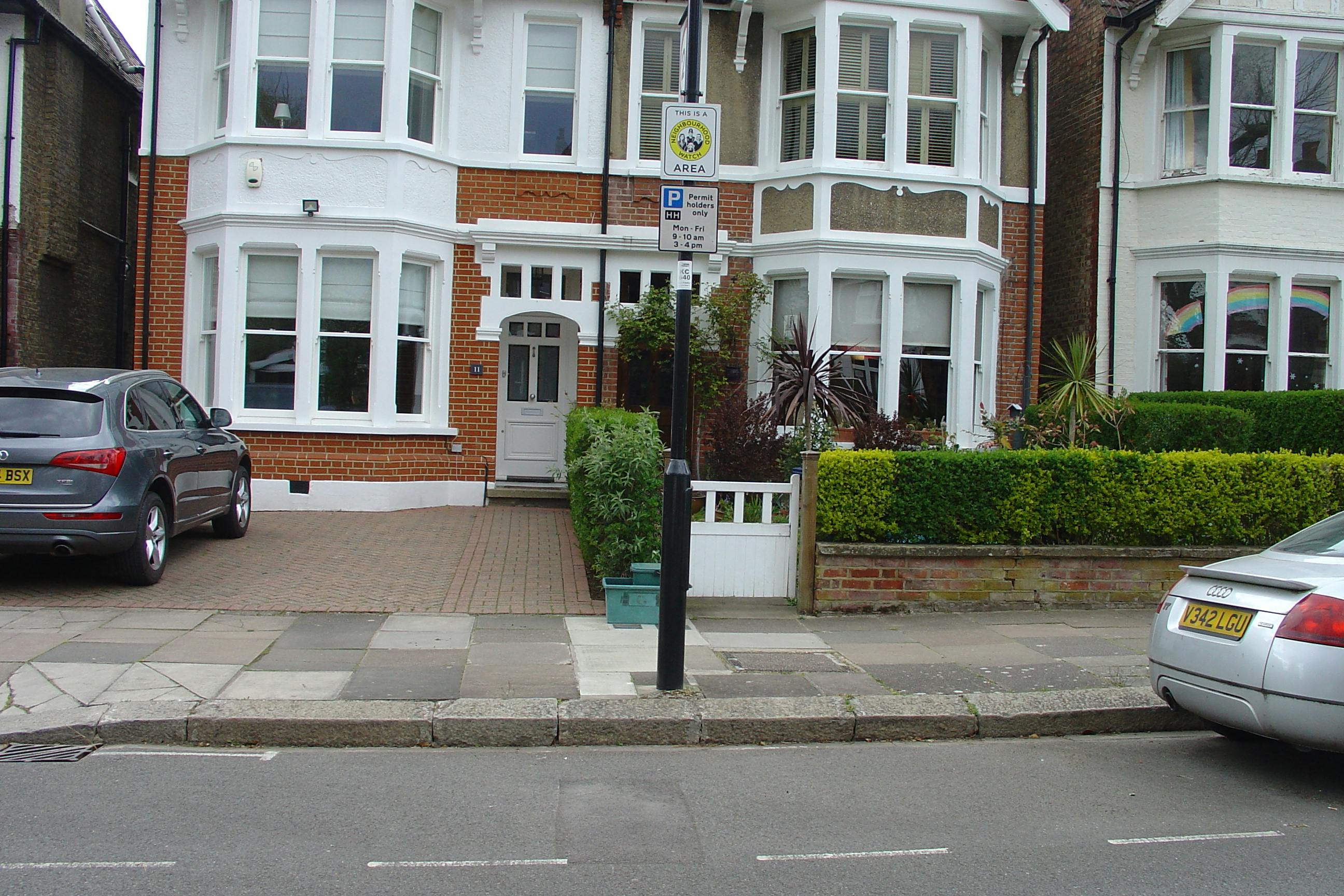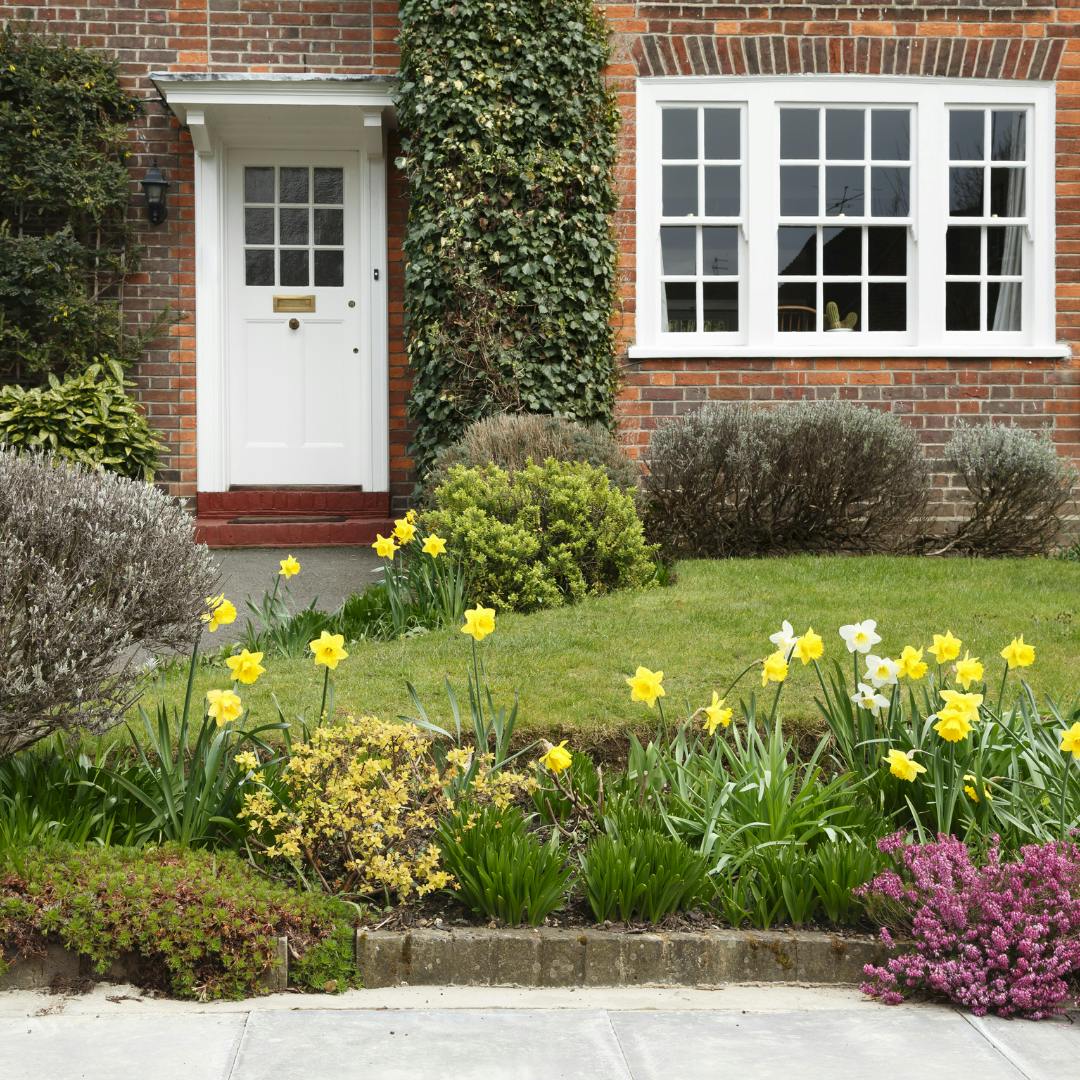Contributing to a More Sustainable Future: the answer might be in your front garden, literally!
Take a look outside, at your own front garden and what do you see?
Take a look up and down your street, is it mostly green or grey in your neighbours front gardens?
According to the Royal Horticultural Society, one in four front gardens are now completely paved over.
- depaving
- concrete
- impermeable surfaces
- front gardens
- surface water flooding
This increasing trend has several negative water and environmental related impacts, which we explored in a catch up with Christine from the Ealing Front Gardens Project. Christine has been involved with this crucial environmental area for 20 years and environmental campaigning for 30, providing us with insights and expertise surrounding the changes, impacts and possible solution. The project recently teamed up with National Park City with the ambition of making cities greener, healthier and wilder.
What is Ealing Front Gardens Project?
Ealing Front Gardens Project has tracked the loss of front gardens to hard surfaces like concrete, brick and tarmac over the last 15 years.
Christine’s research-led background and passion for creating a more sustainable future resulted in an impactful research project in 2005. This highlighted the extent of hard surfacing of front gardens in the London Borough of Ealing - a trend experienced throughout the rest of London and UK.
Keep reading to find out more about the impacts of this trend, and what can be done to combat this!

So what is the problem with paving over our front gardens? And why has this become so common?
Replacing front gardens with hard surfaces such as brick, concrete and tarmac has a number of negative environmental and social impacts:
- Increasing surface water run-off, as water cannot soak into the ground
- This impacts rivers by causing rapid fluctuations in flow, leading to scouring of riverbanks, destruction of habitats and increased pollution in rivers
- Water entering our drainage systems more rapidly, at rates they struggle to cope with – this can lead to local flooding, affecting properties and infrastructure, and sewage overflows into rivers
- Hotter neighbourhoods, due to the heat island effect, affecting people’s health
- Reducing biodiversity and habitats for wildlife
- Worse air pollution and less CO2 absorption because of fewer plants and trees
- Grey, depressing neighbourhoods and less community interaction
Christine explained in 1995, pavement crossovers were designated as “permitted development” by the Conservative government. This change in legislation led to an increasing number of homes paving over their front gardens, often to act as parking for cars. This has only been further accelerated by the uptake of electric cars.
The Hard Surfacing Survey found there are over 74,000 front gardens in Ealing alone with a total surface area of 3,052,000 square metres (m2). In 2005, around two-thirds of this area was covered with hard surfacing, the equivalent area of Hyde Park - by one and a half times!
These figures were recorded only 10 years after legislation alterations. Around this time, impact from changes was experienced countrywide through extensive flooding UK wide in 2007. In more recent research from the Royal Horticultural Society, they found three times as many front gardens are now paved over compared to 10 years ago - this really highlights the continuing trend and wide scale impact.

Alternatives to Paving Over Front Gardens
Increasing awareness surrounding issues related to paving over front gardens and the alternatives is integral to the work Christine contributes to with the Ealing Front Gardens Project. There is extensive information and examples on the website, including a real life restoration example in 2017! Here are just a few alternatives to paving over your front gardens:
Use Fewer Hard Surfaces
If parking is needed, only use two tracks for tyres alongside a path, instead of covering the whole surface. Not only is this cheaper, but it enables water to soak into the ground more easily.
Matrix Paving
Matrix Paving has a few different names:
- Grasscrete
- Celluar Paving
- Cellular Grass
Distinct in appearance, matrix paving consists of hexagonal or rectangular cells creating a matrix like structure. The holes enable plants to grow in gaps with soil exposed to rain and air.
What is Depaving?
If your garden is already paved over, you can take part in depaving!
This involves removing hard surfaces such as tarmac and concrete and replacing it with surfaces that enable water to soak into the ground, like gravel or soil. Depaving can be done in sections, depending on your needs and has lots of benefits - keep reading to find out more! Depaving helps slow the flow of water and can improve the appearance your garden.
With so many front gardens now paved over, encouraging depaving is a big part of Ealing Front Gardens Project’s goals! We can also look to other countries including Portland in the USA, Holland and Belgium that have successfully implementing depaving projects with collaboration from local authorities.


There is a bunch of benefits too!
Using the above methods in your front gardens and green spaces has many benefits, which include:
- Improved flood resistance
- Absorption of heat, cooling our outdoor spaces
- Improved biodiversity
- Uptake of CO2
- More attractive outdoor spaces
- Low maintenance
Hopes for the Future
Christine explained key goals she hopes the Ealing Front Gardens Project will hope to achieve:
Changing Government Policy
By helping to influence policy, Christine hopes to have a widespread impact, tackling issues associated with paving over front gardens country wide.
Communication and Awareness
By collaborating with London National Park City and other organisations, awareness can be raised across a larger area. As this issue impacts homes throughout the UK communicating challenges around front gardens and the impact of paving over them will be essential to improving understanding.
Demonstration Project
To highlight the impact depaving can have, a demonstration project involving communities and real-world results would help provide tangible results and raise awareness of the problem and solutions.
The Front Gardens website has lots of information about this topic, including 43 reasons to keep gardens green!
A big thank you to Christine for her time and contribution to this article - we are very excited to see the progress the Ealing Front Gardens Project and National Park City make over the coming months and years!